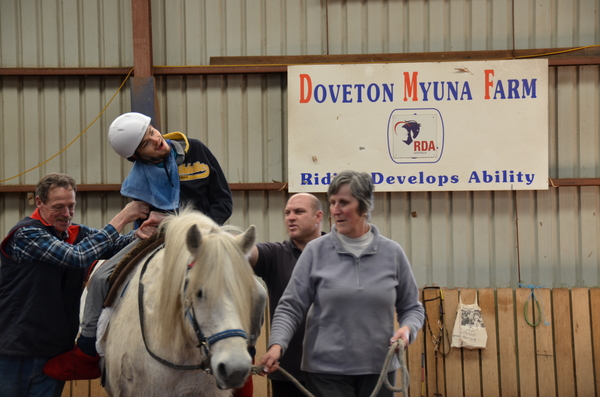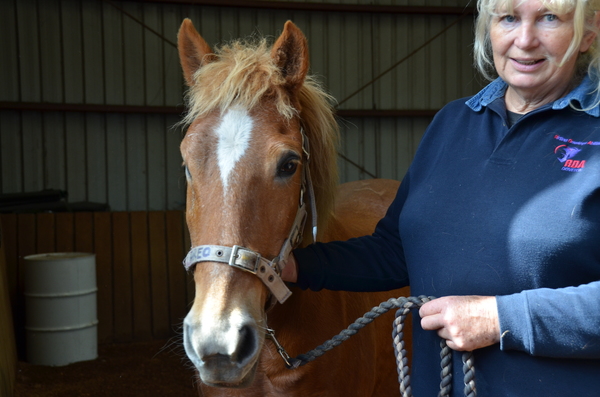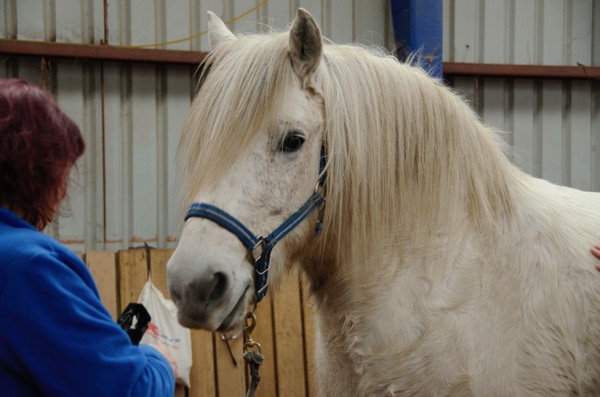By Casey Neill
Riding for the Disabled in Doveton is “not just a pony ride”.
Volunteer Gloria O’Connor has seen riders make remarkable physical, social and mental improvements during her 15 years with the Myuna Farm-based therapeutic riding group.
She reached out to the Journal News, desperate to encourage new volunteers.
When a reporter stopped by, a rider named Luke was sitting up straight on horseback.
Vice-president Rick Beeby pointed out foam blocks on the sidelines.
“Someone with very poor core muscle strength actually puts their elbows on that and they gradually learn to lift their head up,” he said.
“When Luke started he couldn’t sit up at all. He had no core strength.”
Riders generally have a one-hour session each week.
“We work out a program based on the rider’s needs,” Mr Beeby said.
“We have riders who need side walkers, and riders who ride independently.
“We focus on their abilities and how we can develop those abilities.”
Luke’s mum, Sue Williams, has watched his core improve during his 10 years in the program.
“He’s got cerebral palsy and cortical vision impairment,” she said.
“He’s not blind but the message takes a while to get through.”
Scoliosis causes him to “sit crooked” in his wheelchair, but horse riding helps him to sit up straight.
“When he knows he’s coming he’s all happy. He loves being on a horse,” Ms Williams said.
“He can trot. He’s very relaxed on the horse.”
Sue helps out the group on a Thursday afternoon.
“At some stages we can have a lot of volunteers and in the blink of an eye have not many,” she said.
“The coaches are all getting older.
“In five years’ time, it’s scary.”
Coach Coosje Dubach is the group’s president.
“There is a big need for us to have people training as a coach,” she said.
“We provide all the training.
“You need to be able to ride a horse these days. In the past you didn’t.
“We can train anyone who’s interested.
“Basically the minimum is half a day. Preferably one day a week.
“As a coach you have to make sure everyone is safe – side walkers, riders, horses.”
Ms Dubach also welcomed volunteers willing to care for the horses on weekends.
“People who are working but still would like to do something, they can join our roster,” she said.
“That could be only once a month if they like.
“We have morning and afternoon feeding and we check the horses out then.
“We have a few people who work and do that, mostly people with a bit of horse experience.”
There’s also a need for committee members.
“A few new young energetic people would be fantastic,” she said.
Barbara Caulfield is training to become a coach.
“I finished work to look after my family and wanted to do something during their school time and I’ve always loved horses,” she said.
“After the first few months I was approached to do the orientation to coaching.
“I’ve done that, I’ve just qualified for that, which means I can go to level one.”
Ms Caulfield’s studies have included reading books and running classes under supervision.
“I’m not working anymore but I’m very much part of a team,” she said.
“At work I used to have lunch breaks with my mates and I have that here too.
“I think it’s a really important part, that sense of community.
“I also get my kids involved.
We’re part of the feeding roster.
“I bring my kids and I make them get their hands dirty and wheelbarrow all the hay around – even when the weather’s not good and they’d rather stay at home.”
Email rdadoveton@gmail.com or call Coosje on 0432 869 215 to get involved.









